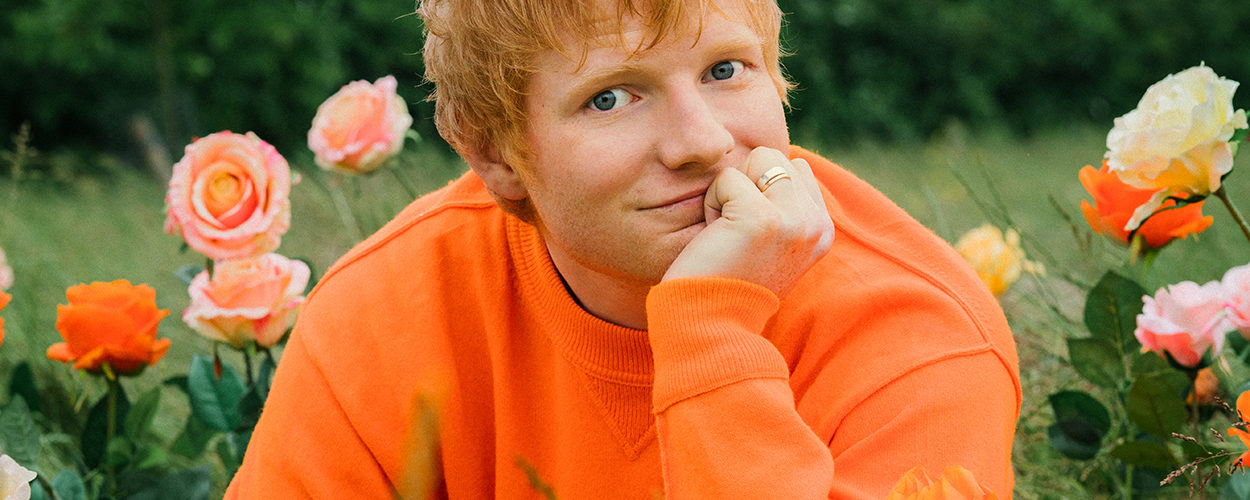This website uses cookies so that we can provide you with the best user experience possible. Cookie information is stored in your browser and performs functions such as recognising you when you return to our website and helping our team to understand which sections of the website you find most interesting and useful.
Artist News Business News Labels & Publishers Legal
Johnny McDaid takes to the stand in Ed Sheeran’s Shape Of You song-theft battle
By Chris Cooke | Published on Thursday 10 March 2022

Snow Patrol’s Johnny McDaid took to the stand in London’s high court yesterday in the ongoing song-theft legal battle over Ed Sheeran’s ‘Shape Of You’, which he co-wrote. He mainly echoed comments already made by his musical collaborator earlier in the week, while also talking about the “culture” of dubious copyright claims in the US courts that followed the 2015 ‘Blurred Lines’ ruling, and insisting that the thought of plagiarising another artist’s work was “abhorrent”.
Sheeran and his songwriting collaborators – including McDaid – are accused of ripping off the earlier track ‘Oh Why’ by Sami Chokri and Ross O’Donoghue when they wrote their 2017 hit. But Sheeran et al deny having ever heard of ‘Oh Why’ before writing ‘Shape Of You’, and counter that the elements shared by the two songs are pretty commonplace in pop music.
In a written statement and during yesterday’s testimony in court, McDaid – like Sheeran – again insisted that the elements shared by ‘Shape Of You’ and ‘Oh Why’ are commonplace, and therefore it’s not unlikely that they would appear in two different pop songs. Both use “sequential notes from the pentatonic scale”, he observed, but “it is a very common melodic structure, in my experience”.
McDaid, like Sheeran, also took issue with the idea that past allegations of song-theft that have been made against the duo – as well as deals done with the writers of old songs that have heavily influenced their new songs – somehow suggest that he and Sheeran make a habit of nabbing musical and lyrical ideas from other artists’ work.
“I have been a professional songwriter for many years and have achieved substantial success”, McDaid said in his written statement. “I do not need or want to, nor would I ever, plagiarise other people’s work. The idea is abhorrent to me”.
As for the implication that those past allegations and deals suggest he is in “the habit of consciously or sub-consciously appropriating the skill and labour of other songwriters during my songwriting and recording sessions – I wholeheartedly disagree with this implication. It is simply not true and I feel that is a very serious thing to suggest about me and how I work”.
While song-theft legal action in relation to Sheeran track ‘Thinking Out Loud’ – which he co-wrote with Amy Wadge – continues to work its way through the US courts, another American lawsuit linked to a song Sheeran co-wrote with McDaid, ‘Photograph’, was settled out of court. In that case, Sheeran and McDaid were accused of ripping off the Matt Cardle track ‘Amazing’.
The lawyer representing Chokri and O’Donoghue has brought up that lawsuit a few times already this week, suggesting that Sheeran and McDaid settled because they knew the ‘Amazing’ writers had a strong case. But Sheeran – and now McDaid – have denied that. In fact, they both argue, they do not believe that ‘Photograph’ infringed on ‘Amazing’ at all, but they were advised that an out of court settlement was the speedy way to make that particular dispute go away.
“It was not settled because we believed that we had copied ‘Amazing’ in any way”, McDaid argued. But, he said, that lawsuit was filed at a time when there was “a culture” of US copyright trials which weren’t “going favourably for songwriters at all”.
It is true that the ‘Photograph’ lawsuit was filed the year after the sometimes controversial ruling in the big ‘Blurred Lines’ song-theft case in the US, which potentially set a precedent opening up more songwriters to copyright infringement claims where new songs sounded similar to old songs.
By the time Sheeran and McDaid settled in 2017, we had had the first judgement in the US case that arguably restricted the impact of the ‘Blurred Lines’ judgement, with a jury deciding that Led Zeppelin’s ‘Stairway To Heaven’ was not sufficiently similar to earlier song ‘Taurus’ to constitute infringement. Although that dispute then went through a long drawn out appeals process, with that judgement only being properly finalised by the Ninth Circuit appeals court in 2020.
So, McDaid is right to say that, in the context of 2017, many music lawyers would likely have concluded that – even if they rejected the song-theft claims being made against them by the writers of ‘Amazing’ – he and Sheeran were probably better off settling the ‘Photograph’ litigation, rather than getting pulled into a test case in an uncertain legal environment.
Especially as Sheeran was, by that point, already involved another test case in the US in the form of the ‘Thinking Out Loud’ litigation. And how was McDaid to know that he’d end up being involved in a big old UK test case the following year, when the dispute with Chokri and O’Donoghue first went legal.
But here we are, test casing a way. And that case, as they say, continues.





